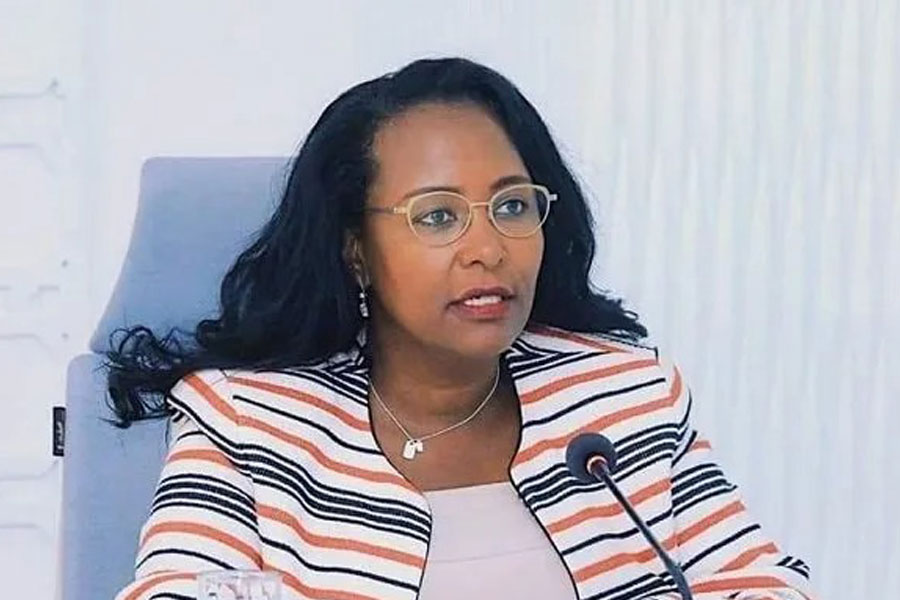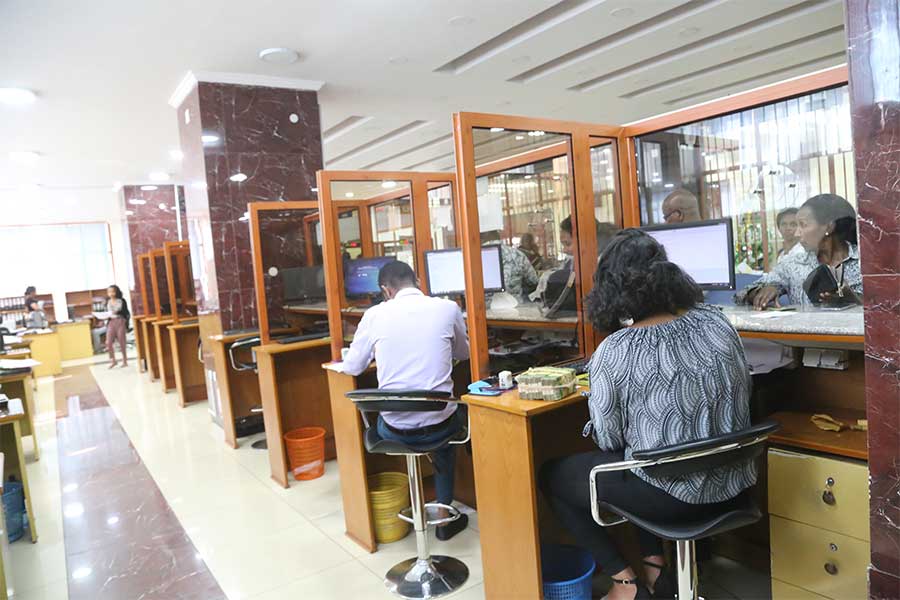
Radar | Jul 15,2023
Nyala Insurance, which recently celebrated its silver jubilee, stands as the best-capitalised private insurance firm over the last fiscal year. The firm's paid-up capital stood at 530.5 million Br, registering a 27.2pc rise.
During the reporting period, the firm's profits also rose by six percent to 139.8 million Br. Despite this increase, its earnings per share (EPS) fell by 15.5pc to 295 Br due to the injection of fresh capital, which secured a firm foundation for the insurer.
Despite the reduction in EPS, the returns that go to the pockets of the shareholders of Nyala are reasonable, according to Abdulmenan Mohammed, a financial statement analyst.
Getachew Birbo, the board chairperson of Nyala, says the firm achieved a positive performance despite the challenges facing the economy and the insurance industry.
"The insurance industry has continued to be challenged by a multitude of factors," said Getachew.
A low level of insurance awareness, a shortage of skilled workers, an absence of attractive bundles of insurance products, heavy regulation, a low level of integration among insurers, heavy influence on the market through different affiliation and interests, unhealthy competition through price undercutting and unethical practices are the challenges cited by Getachew.
"On top of the impact of the COVID-19 pandemic," said Getachew, "the country has been challenged by macroeconomic imbalances, serious political instability, violence with social turmoil, and natural disasters such as locust invasions and floods."
Yared Mola, CEO of the firm, adds that the insurance industry was a direct reflection of the economic and socio-political situations of the past year. He stated that there were no new investments, road projects and government ventures and this led to a slump in insurance demand.
"The appetite and size of insurance demand from existing customers has also dropped," said Yared. "We're struggling to retain our existing customers by convincing them to renew their policies."
Yet the firm managed to increase its profit after tax, mainly driven by significant growth in gross premium and dividend income.
Nyala’s underwriting surplus of the general insurance business registered at 123 million Br, showing an increase of 5.6pc from last year's figure of 116.5 million Br.
The gross written premium of the company stood at 565.3 million Br, exhibiting a 15pc rise. The firm ceded 212.7 million Br of this amount to reinsurers, leading its risk retention rate to drop by 2.5 percentage points to 62.4pc.
The growth in gross written premium is remarkable for an industry that is known for fierce competition, according to Abdulmenan.
Nyala should consider increasing its retention rate, which is far lower than the industry average of 77pc, while putting appropriate risk management mechanisms in place in order to keep a considerable portion of its gross written premium, according to the expert.
Yared, who has a sharply differing opinion on the matter, says that his firm retains risks based on the project size, the nature of the project and the central bank directive that requires companies to have a risk gross retention rate that is not less than five percent of the company's total capital and reserves.
"There's no arbitrary and agreed upon lump sum to be read as a good retention rate," says Yared. "And we don't retain risks that can potentially paralyse the economy."
In the past year, Nyala earned commissions of 56.8 million Br, an increment of seven percent. It paid commissions of 17.8 million Br to agents, an increase of one million Birr.
Claims paid and other provisions rose by 8.2pc to 175.3 million Br.
Interest earned on savings decreased by 1.8pc to 80.8 million Br, while dividends earned on investments spiked by 37.1pc to 37.9 million Br.
The growth in dividend income is impressive, according to the expert.
Expenses on salaries and benefits increased by 17.4pc to 102.6 million Br. Operating, administrative and other expenses increased by 12.7pc to 200 million Br.
"Considering the expansion in business and the level of inflation," said Abdulmenan, "the growth of expenses is reasonable."
At the end of the year, the total number of Nyala's service outlets, including the satellite and contact offices, reached 47. The firm's human capital also reached 344 employees, showing a slight increase of one percent from the preceding year.
The total assets of Nyala increased by 7.6pc to 2.2 billion Br. Out of this balance, 557.6 million Br was kept in time deposits, 269.2 million Br in shares and 116.4 million Br in investment properties. These investments account for 43.5pc of the total assets of Nyala.
Ratio analysis shows that the liquidity level of Nyala decreased in value and relative terms. Cash and bank balances went down by 31.7pc to 177 million Br. The ratio of cash and bank balances to total assets of Nyala declined to 8.1pc from 12.9pc. The capital and non-distributable reserves represent 38.7pc of its total assets.
This shows that Nyala has very strong capital, which should be used efficiently, according to Abdulmenan.
PUBLISHED ON
Feb 27,2021 [ VOL
21 , NO
1087]

Radar | Jul 15,2023

Fortune News | Feb 04,2023

Agenda | Sep 28,2024

Viewpoints | Mar 18,2023

Radar | Dec 04,2022

Commentaries | Mar 25,2023

Radar | May 11,2024

Agenda | Jan 25,2020

Radar | Jul 06,2025

Radar | Dec 25,2021

Dec 22 , 2024 . By TIZITA SHEWAFERAW
Charged with transforming colossal state-owned enterprises into modern and competitiv...

Aug 18 , 2024 . By AKSAH ITALO
Although predictable Yonas Zerihun's job in the ride-hailing service is not immune to...

Jul 28 , 2024 . By TIZITA SHEWAFERAW
Unhabitual, perhaps too many, Samuel Gebreyohannes, 38, used to occasionally enjoy a couple of beers at breakfast. However, he recently swit...

Jul 13 , 2024 . By AKSAH ITALO
Investors who rely on tractors, trucks, and field vehicles for commuting, transporting commodities, and f...

Jul 5 , 2025
Six years ago, Ethiopia was the darling of international liberal commentators. A year...

Jun 28 , 2025
Meseret Damtie, the assertive auditor general, has never been shy about naming names...

Jun 21 , 2025
A well-worn adage says, “Budget is not destiny, but it is direction.” Examining t...

Jun 14 , 2025
Yet again, the Horn of Africa is bracing for trouble. A region already frayed by wars...